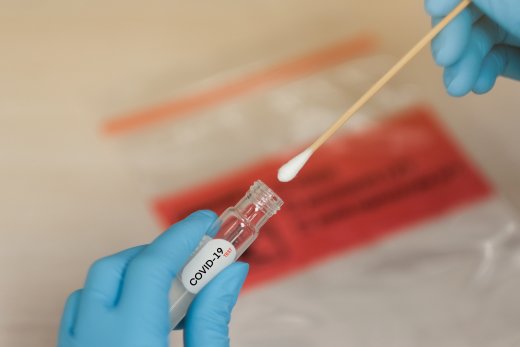30/06/2021
The need of rapid testing - dr. Annelies Riezebos-Brilman
Many were caught by surprise when COVID-19 took over the world in record time. However, experts have been warning us of a situation like this for years. Shall we listen to them and prepare ourselves for the next pandemic? Influenza can be seen as a likely candidate to cause the next one. In this series of articles, we explore influenza and the possibility of it becoming the next pandemic by consulting experts from various fields.
For this article, we interviewed Annelies Riezebos-Brilman, clinical microbiologist/virologist LabMicTA, in Hengelo, the Netherlands.
How does your work relate to influenza?
As a clinical microbiologist, I am responsible for the diagnostics, antimicrobial stewardship, and infection prevention of infectious diseases in patients. We perform diagnostics for general practitioners, nursing homes, hospitals, and intensive care. In case of influenza, this is mostly done by using PCR tests because it gives the most reliable result. If there would be a biosensor that could rapidly and accurately test influenza, that could be very interesting.
Could influenza cause a huge pandemic like the COVID-19 pandemic?
In theory, influenza can cause a pandemic of the same size as the current COVID-19 pandemic. Clinicians and scientists have actually always been very wary of this. The focus was always more on influenza viruses rather than coronaviruses, which is why we were surprised by the COVID-19 pandemic. Of course, there have already been some very serious influenza pandemics. Best known is the Spanish flu during the First World War, which resulted in many deaths.
However, you can never be sure which virus will result in a pandemic. Viruses that are easily transferable between humans but do not immediately kill someone, could spread quickly and may form good candidates for a pandemic. Crucial for a pandemic is a newly formed virus, often with a reservoir in animals, that can be transferred to humans. In 2009, a new influenza virus, H1N2pdm09 caused a pandemic. Because this was a new virus created by reassortment, mainly in pigs, the immune system of humans did not recognize it. The lack of pre-existing immunity is what makes it dangerous since many people can become infected and subsequently become ill.
Why could it be important to have rapid tests for influenza?
This is important for two reasons: to be able to identify the virus and act accordingly. When you know you are infected, you can adjust your behavior, for example, by going in quarantine if necessary or get early treatment in case you are a patient within a high-risk group. In the case of a pandemic, rapid tests are crucial in keeping the spread of the virus under control in the community as well as inside institutions.
How could we prevent a pandemic in the future?
Pandemics happen, viruses have been on this earth longer than we have. The power we have is to recognize and contain the virus as quickly as possible. The sooner a virus is identified, the better we can prepare. We would need a test that can tell us if it is a virus we know or if it is a new one. Viruses we do not know yet could be the most dangerous ones.

Facebook
YouTube
LinkedIn
Instagram